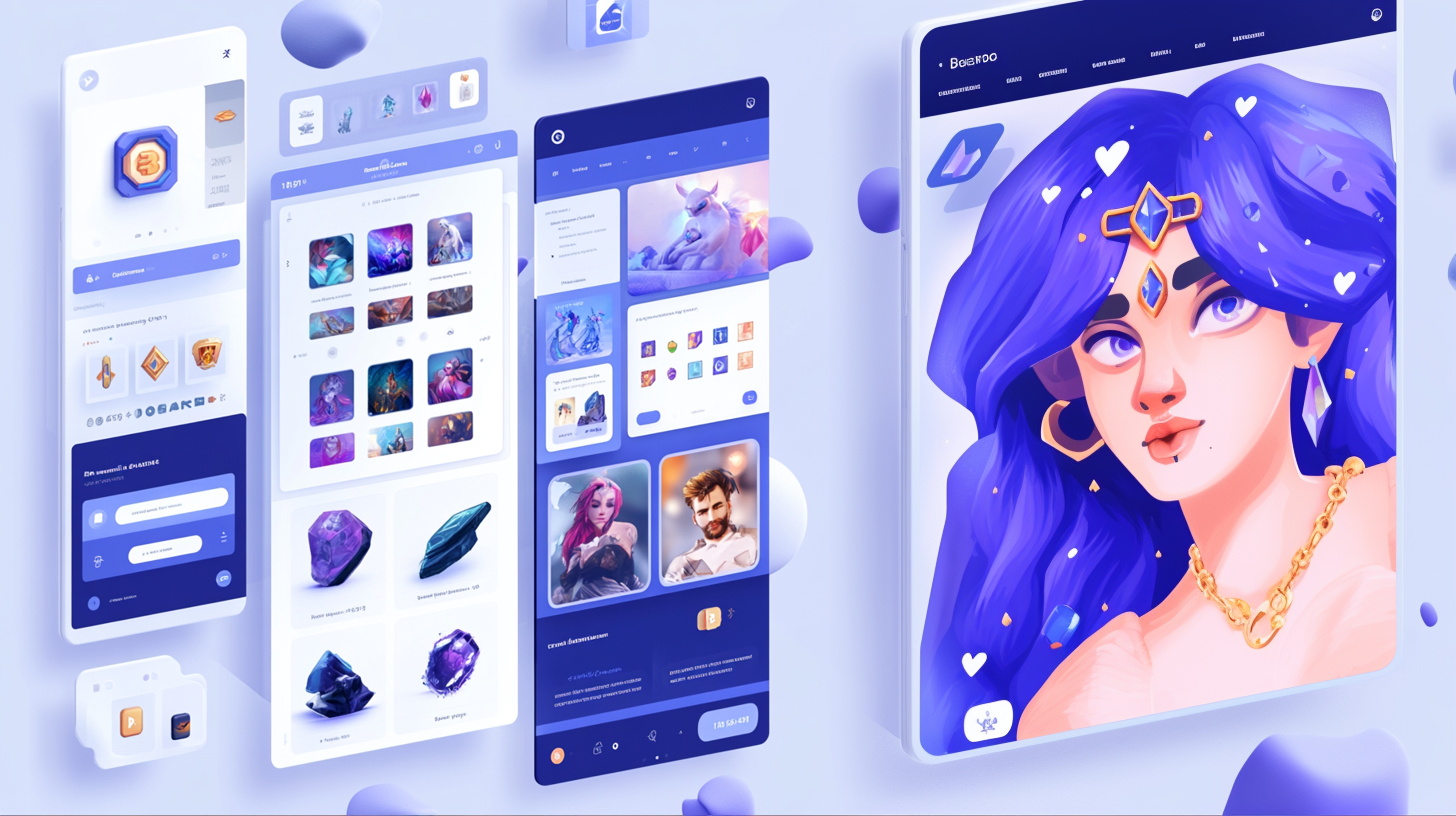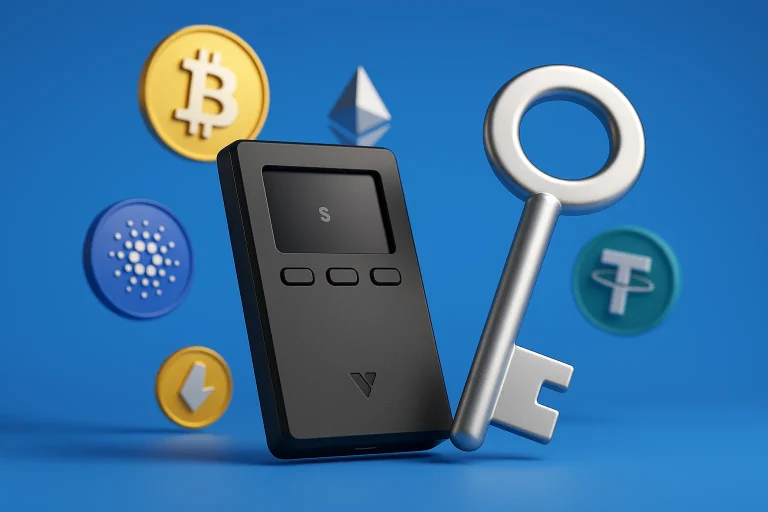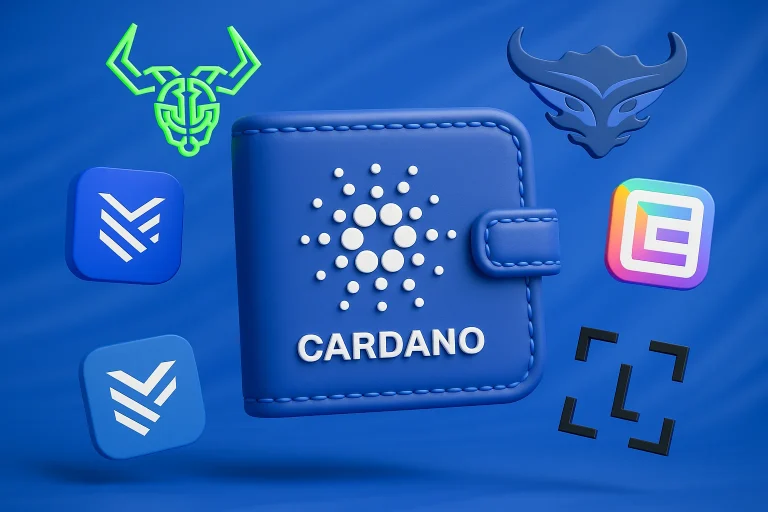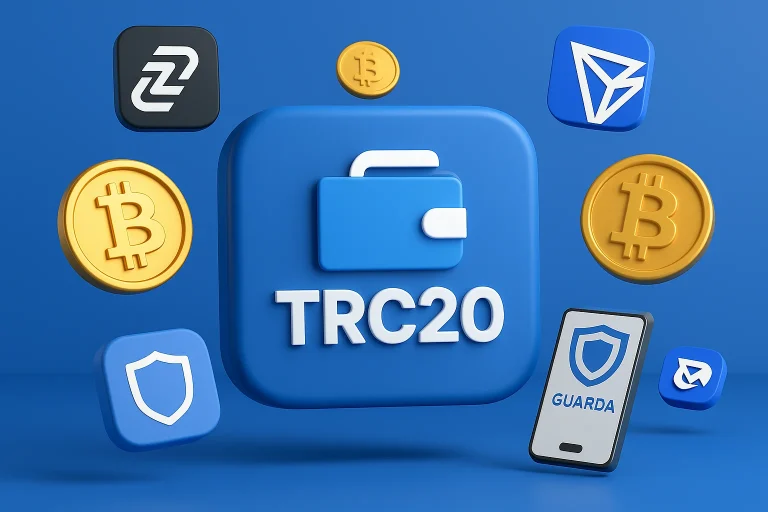Finding the best NFT marketplace can be overwhelming with the numerous available platforms. Some NFT sites charge high transaction fees, have limited features, or offer a poor user experience. Others don’t support your preferred blockchain or lack support for fiat currency payments, such as USDC.
Choosing the wrong NFT marketplace could mean missing out on trending NFT releases, overpaying gas fees, or limiting your reach in the rapidly expanding NFT space. Thus, it’s essential to choose wisely from the start.
This article will help you find the top NFT platforms for your goals. We’ve compared the leading marketplaces based on fees, blockchain support, ease of use, royalties, and auction tools.
With the NFT market expected to grow from $26.41 billion in 2023 to $222.79 billion by 2031 (a 33.7% CAGR), there’s never been a better time to explore the digital world of non-fungible tokens (NFTs).
Table of contents
Best NFT Marketplaces: Quick Comparison
This comparison table highlights the top NFT platforms based on blockchain support, fees, features, and user types, helping you find the right NFT marketplace to buy, sell, or trade with confidence.
Quick Comparison | |
|---|---|
| OpenSea | Best for: Beginners & Mainstream NFT Trading Blockchains: 19+ Avg. Fee: 2.5% on secondary sales Auction: Yes USDC: Yes |
| Blur | Best for: Pro Traders & High-Frequency Flipping Blockchain: Ethereum Avg. Fee: 0% platform fee & ~0.5% minimum royalty Auction: Yes USDC: No |
| Magic Eden | Best for: Solana NFT Ecosystem & Multi-Chain Expansion Blockchains: 10+ Avg. Fee: 2% on secondary sales Auction: Yes USDC: Yes |
| Rarible | Best for: Multi-Chain & Customizable Storefronts Blockchains: 15+ Avg. Fee: 2.5% for buyers & sellers Auction: Yes USDC: Yes |
| Foundation | Best for: High-End Digital Art & Curated NFT Drops Blockchain: Ethereum Avg. Fee: 5% seller’s fee Auction: Yes USDC: No |
1. OpenSea, Best for Beginners and Mainstream NFT Trading

If you’re new to NFT trading or want a simple, easy-to-navigate platform, OpenSea is one of the best NFT marketplaces. It offers a beginner-friendly interface, support for multiple NFT standards, and a wide range of digital assets, including gaming NFTs, AI art, and collectibles
Key Features: | |
|---|---|
| Multi-chain support (15+ networks) | Trade across the Ethereum blockchain, Polygon, Zora, and more without switching platforms. |
| Buy NFTs with credit cards or USDC | Perfect for users who don’t want to rely on ETH or deal with Ethereum gas fees. |
| Simplified interface for new users | Easily mint NFTs, browse collections, or purchase NFTs without needing technical skills. |
| The biggest NFT marketplace by volume and user base | Discover top collections such as Bored Ape Yacht Club or explore multiple NFTs from newer creators. |
| Mainstream brand partnerships | Access exclusive drops from Reddit, Adidas, and Warner Bros. |
Why We Choose It
OpenSea is the best NFT marketplace for first-time users. It offers maximum reach, a clean UI, and the ability to use stablecoins.
2. Blur, Best for Pro Traders and High-Frequency Flipping
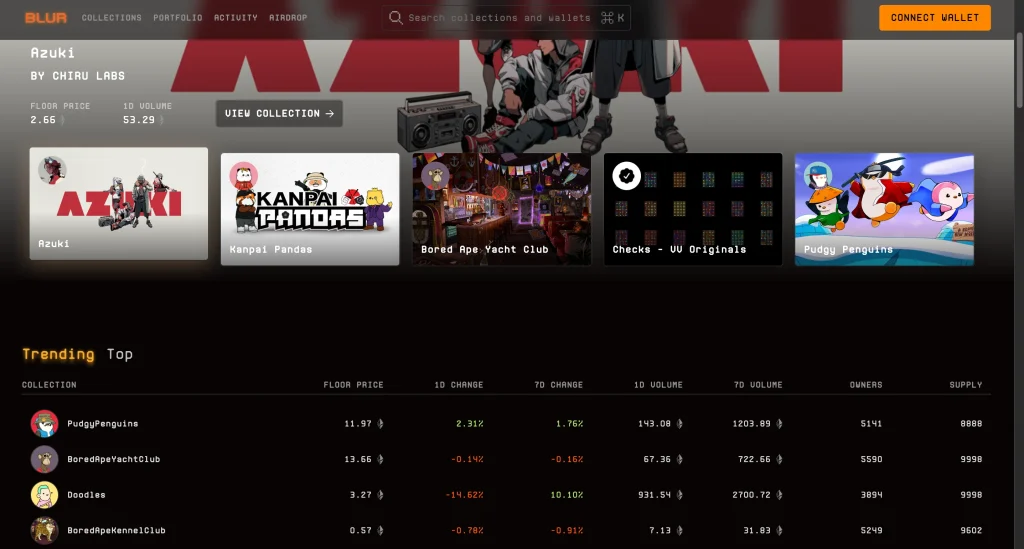
For experienced NFT traders, Blur is one of the top NFT marketplaces. It’s built for fast-paced trading with 0% platform fees and bulk purchase features. It appeals to those looking to trade NFTs frequently with real-time analytics and platform rewards.
Key Features: | |
|---|---|
| Zero platform fees | Helps maximize profits on secondary sales. |
| Advanced analytics | Real-time floor price tracking and market movement data. |
| Batch buy/sell tool | Ideal for flipping entire NFT collections or sweeping the floor. |
| Liquidity incentives | Earn your token rewards for active trading. |
| Deep wallet integration | Connect with crypto wallets (MetaMask or X2Y2.) |
Why We Choose It
Choose Blur if you’re an advanced trader who flips NFTs regularly and wants the fastest tools, deepest insights, and lowest fees.
3. Magic Eden, Best for Solana NFT Ecosystem and Multi-Chain Expansion
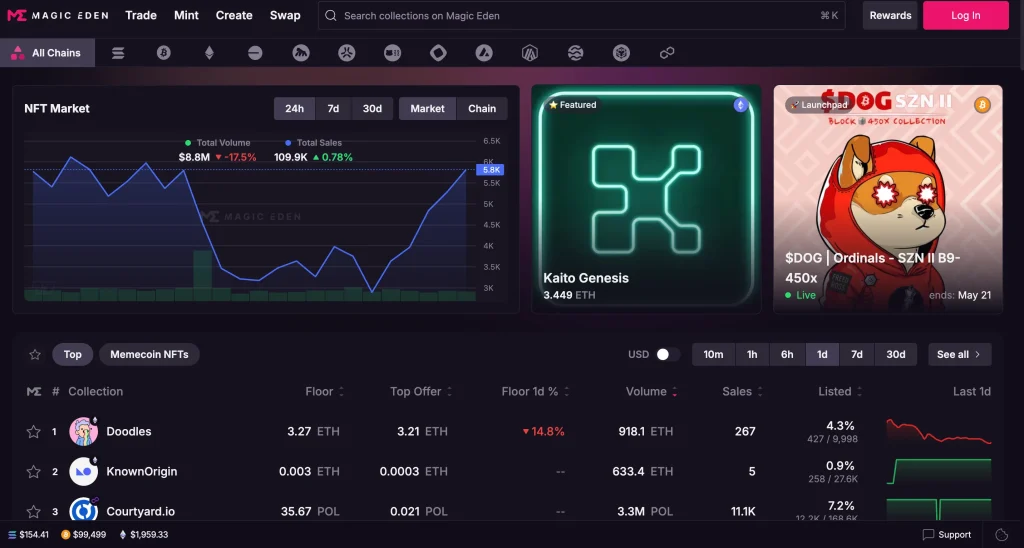
Originally a Solana-native platform, Magic Eden has expanded into a multi-chain NFT marketplace supporting Bitcoin Ordinals, Binance NFT, and more. It’s great for those who want low-cost, cross-chain NFT interactions.
Key Features: | |
|---|---|
| Multi-chain capabilities | Supports Solana, Ethereum, Polygon, and even Bitcoin NFTs. |
| Launchpad support | Tools to help NFT artists and creators mint and market their projects. |
| Low gas fees and fast execution | Especially effective for NFT trading on Solana. |
| Mobile-friendly | Trade on the go, whether browsing or selling NFTs. |
Why We Choose It
Magic Eden is the top choice for Solana and cross-chain NFT fans who want a fast, affordable, and mobile-friendly experience.
4. Rarible, Best for Creators Who Want Multi-Chain and Customizable Storefronts

Rarible stands out among the best NFT platforms for creators who want control. It allows artists to create their own NFT marketplace and mint across 20+ blockchains. The platform is community-driven through its RARI token and has one of the most expansive blockchain supports.
Key Features: | |
|---|---|
| No-code storefront creation | Build a custom shop on your blockchain. |
| Royalties enforcement via smart contracts | Protects NFT artists’ long-term income. |
| Governance token (RARI) | Vote on platform changes and earn rewards. |
| Integrated social tools | Engage directly with NFT buyers and collectors. |
Why We Choose It
Rarible is the go-to NFT platform for creators who want flexibility, control, and visibility across multiple blockchains.
5. Foundation, Best for High-End Digital Art and Curated NFT Drops

If you’re serious about digital art, Foundation is a top-tier NFT marketplace for artists and collectors. Its curated approach prioritizes quality over quantity.
Key Features: | |
|---|---|
| Curated artist onboarding | Only top-quality, vetted artists can be listed, ensuring premium content. |
| Auction-based sales model | It lets you earn top bids on 1/1 art and rare collections. |
| Strong Ethereum-native support | Trusted by artists for its stable smart contract infrastructure. |
| Royalties & artist-first mechanics | Artists receive ongoing income via royalty splits. |
| Minimalist, art-focused interface | Built for digital art lovers, not PFPs or gaming NFTs. |
Why We Choose It
Foundation is the best NFT marketplace for digital art lovers and professional artists looking to sell in a curated, auction-style environment.
How to Choose the Best NFT Marketplaces
1. Blockchain Support
When picking a marketplace, check which blockchains it supports. If you use Solana, Ethereum, or Polygon, ensure the platform can handle it. The more networks it supports, the more NFT collections you can access.
This is important if you want to explore different types of NFTs, such as gaming assets, AI art, or collectibles, without switching platforms.
2. Marketplace Fees
Fees can quickly eat into your profits. Some platforms, like Blur, have 0% fees, while others, like Foundation, charge up to 5%. These fees apply when you sell an NFT, so consider how often you plan to trade.
Low-fee platforms are great for active traders, while premium platforms may offer more exposure for high-value art.
3. Royalties Enforcement
Suppose you create NFTs, royalties matter. Some platforms allow you to earn a percentage every time your NFT is resold. However, due to changes in royalty enforcement across the industry (especially in 2024), not all marketplaces honor royalties by default.
Look for platforms like Rarible and OpenSea, which still support royalties through optional settings or smart contract tools.
4. Ease of Use
A user-friendly platform can make your NFT journey much smoother. OpenSea and Magic Eden are great for beginners because they offer clean interfaces, wallet integration, and step-by-step minting processes.
More advanced platforms like Blur might be overwhelming at first, but are ideal once you gain more experience.
5. Auction & Bidding
Do you want to participate in timed NFT auctions or run your sales?
Then look for platforms that support bidding features. Foundation and Rarible let you launch auctions and accept offers. This adds flexibility to your pricing and can help drive up the final sale price if demand is high.
6. Payment Options
Most NFT marketplaces use ETH, but more are starting to support USDC, SOL, and other stablecoins. Platforms like OpenSea and Magic Eden accept USDC, which helps avoid crypto volatility. Always check which currencies are accepted before listing or buying.
7. Security & Reputation
Stick with NFT marketplaces with a solid reputation and proven security. Look for features like:
- Wallet encryption or integration with secure wallets (e.g., MetaMask, Phantom);
- Smart contract audits;
- Two-factor authentication (2FA);
- Active moderation or support teams.
Well-known platforms like OpenSea, Blur, and Magic Eden have handled millions of transactions and built trust in the Web3 space.
FAQ
Is NFT still profitable?
NFTs can still be profitable, especially using the best NFT marketplaces. Focus on trending or rare digital assets, such as gaming NFTs or AI-generated art. Choose low-fee NFT marketplaces that help you save on transaction costs to boost your profits.
Is Rarible better than OpenSea?
Rarible and OpenSea are two of the most popular NFT marketplaces. Rarible stands out with its community-driven features and support for multiple blockchains. OpenSea is known as the most user-friendly NFT marketplace. It has a larger audience and more active users, making it ideal for quick exposure and faster sales.
Where do people trade NFTs?
People trade NFTs on top NFT marketplaces such as OpenSea, Rarible, Blur, and Magic Eden. These platforms are known as the most popular NFT auction sites.
Can I sell AI-generated art on OpenSea?
Absolutely. OpenSea supports selling AI-generated art, making it a go-to choice for digital creators. It’s also one of the best NFT marketplaces for artists due to its large audience and relatively low fees compared to other NFT auction sites, with the lowest costs.
Do you make money every time an NFT is sold?
Many top NFT marketplaces support royalties, so creators earn a percentage each time their NFT is resold. Platforms like OpenSea and Rarible let you set royalties, which is key when comparing top NFT marketplaces for long-term passive income.
Final Thoughts
There’s a digital platform where you can buy NFTs, sell AI art, flip trending PFPs, or build your own NFT brand. OpenSea is ideal for beginners, while Blur is designed for professional traders. Magic Eden works across multiple blockchains, Rarible is great for creators, and Foundation focuses on premium digital art.
From virtual worlds to rare collectibles, the NFT space offers endless possibilities. Choose the best NFT platform based on your goals, and unlock your place in the NFT world today.

